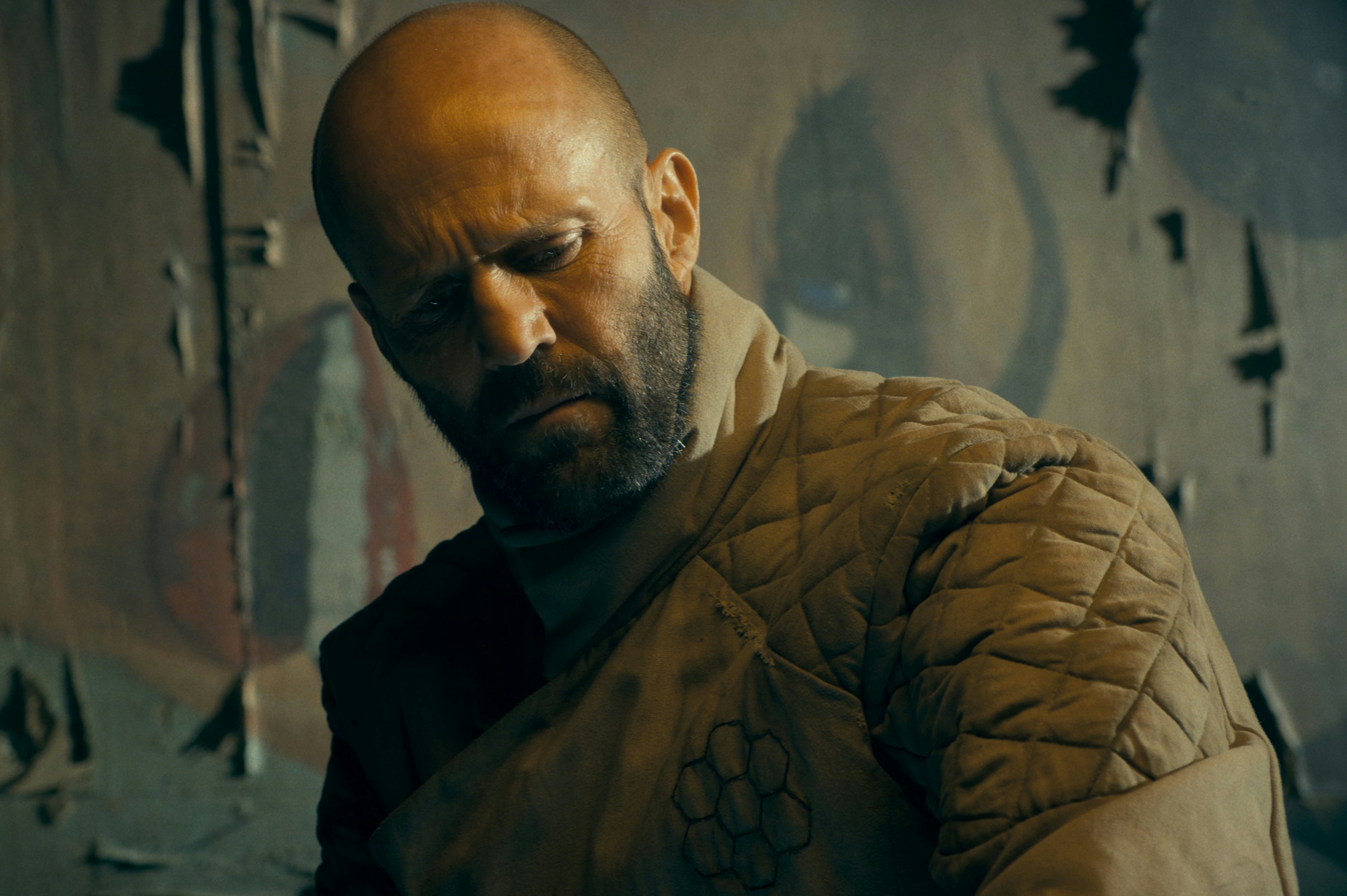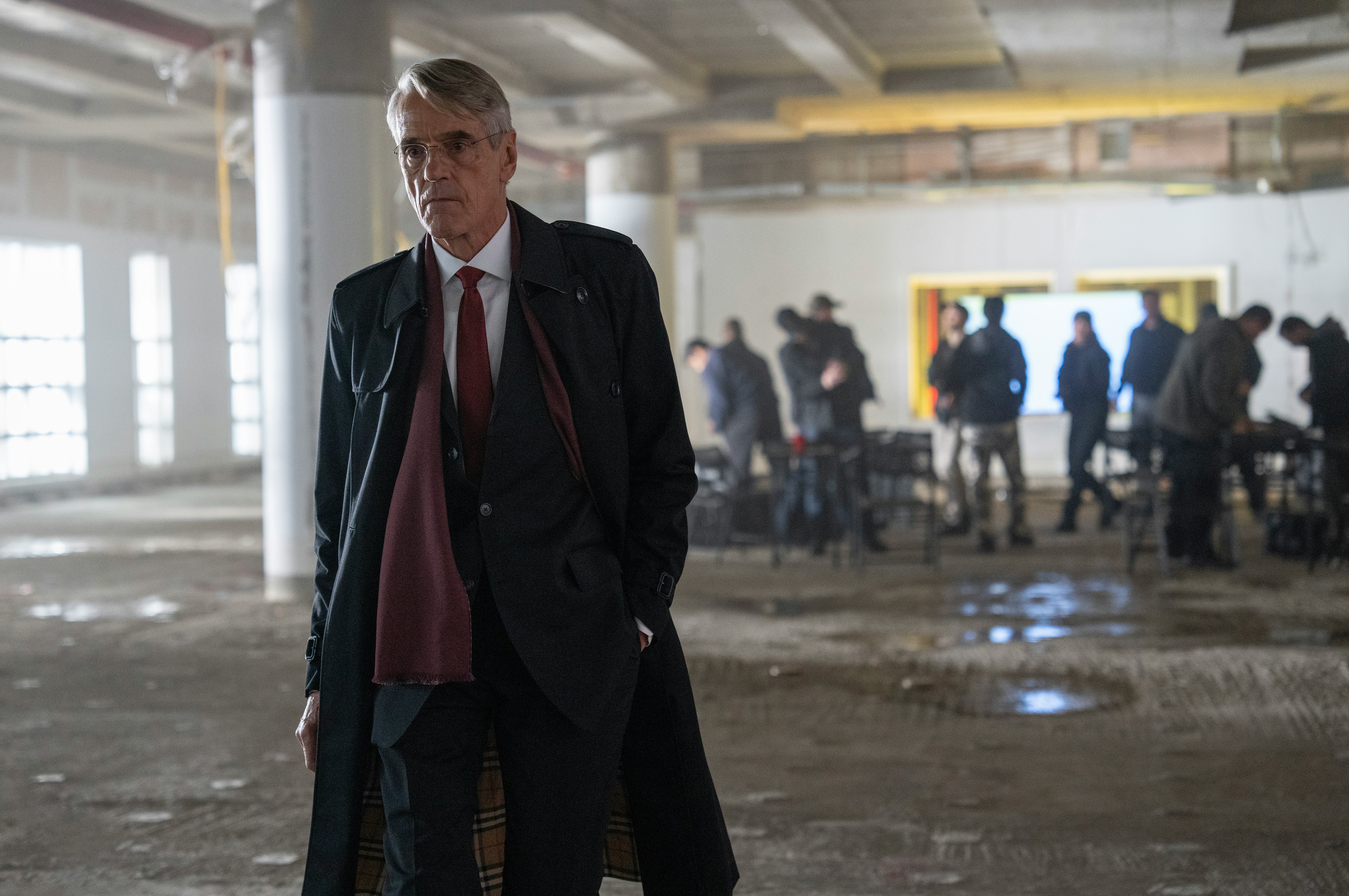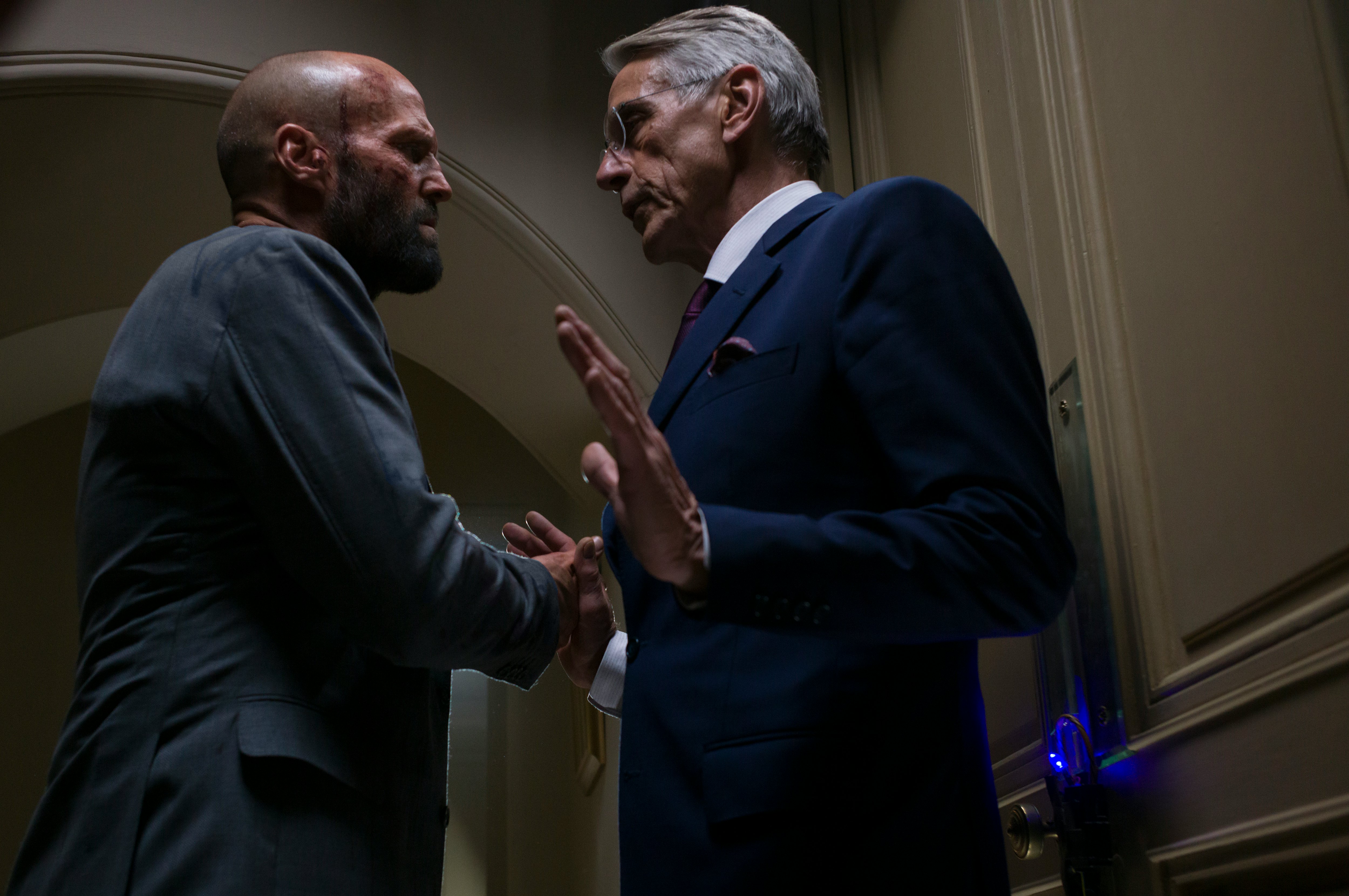
Every now and then, a movie like John Wick comes around, far exceeding its direct-to-video expectations. And then, there are movies like The Beekeeper, which does exactly what it promises to do: deliver multiple scenes of Jason Statham roundhouse kicking goons while spouting lines like “I protect the hive.” And sometimes, that's all you want out of a movie.
Director David Ayer’s new action thriller about an unstoppable soldier of justice who ends up at the center of a conspiracy extending to the top of the food chain sometimes reaches for a political profundity far beyond its grasp. But for the most part, Ayer keeps his aim low and his taste positively juvenile. It’s a movie that promises to give you scenes where Jason Statham murders swarms of enemies in different, often creative ways. It’s a film that riotously packs in more bee-related puns and punchlines than you’ll be able to see coming. And it’s exactly the kind of silly action thriller that has long been a staple of the January movie season.
The Beekeeper begins the only way it could, with a montage of its hero, Adam Clay (Statham), literally managing multiple hives of bees. In the minutes that follow, the film establishes Adam’s caring friendship with Eloise Parker (an inevitably underutilized Phylicia Rashad), the woman whose barn he’s rented out for months. Adam confesses to Eloise that she’s the only person who’s ever taken care of him. Viewers then watch in horror as she’s lured into a phishing scam run by the smarmy Mickey Garnett (David Witts) and swiftly robbed of all of her money. In the wake of her sudden, all-encompassing digital theft, Eloise shoots herself.
When Adam returns that night for dinner, he not only discovers Eloise’s dead body but also meets her FBI agent daughter, Verona (Emmy Raver-Lampman). Upon learning the story behind her suicide, Adam reassumes his former duties as a “Beekeeper,” i.e. an undercover, highly skilled member of an independent task force designed to maintain the world’s global peace, root out corruption, and “protect the hive.” He tracks down Mickey, burns his call center office to the ground, and sets off on a quest to permanently take down Mickey’s nepo baby boss, Derek Danforth (Josh Hutcherson).
As Adam makes his way through one obstacle after another, both Verona and Derek’s corporate protector, former CIA chief Wallace Westwyld (a paycheck-cashing Jeremy Irons), do their best to stop him. Their attempts mostly prove to be in vain. Adam Clay isn’t John McClane. He doesn’t get injured and he doesn’t slow down. He is a super soldier minus the serum, and while The Beekeeper sometimes fails to convince you of the extent of his capabilities, he’s a character Statham was more or less born to play. No one embodies unwavering assassins better, and The Beekeeper finds him at his most invulnerable. Outside of some of the stars of the John Wick franchise, there aren’t many actors who can make you believe in the deadliness of their punches and kicks more than Statham.

While it takes a bit to truly get going, The Beekeeper doesn’t hold back once it does. The film features several astonishingly violent sequences, including one gas station assault involving a minigun and an unhinged assassin (played briefly but memorably by Megan Le) that ends with a well-timed throw of a jar of honey. Another sees Statham’s Adam make his way up the floors of a Boston office building while laying waste to entire legions of private security mercenaries with a couple of sneak attacks and the skillful cutting of an elevator line. Behind the camera, Ayer never gets in his own way. He doesn’t overstylize any of The Beekeeper’s set pieces but keeps them visually legible, and Geoffrey O'Brien’s editing imbues each with a pleasingly fast pace.
Kurt Wimmer’s screenplay, however, doesn’t always match the efficiency of Ayer and O’Brien’s work. The script fills its 105-minute runtime with superfluous scenes involving Raver-Lampman’s ill-defined Verona, whose pursuit of Statham’s once-clandestine operative doesn’t ever matter enough to seem worthwhile. While Ayer, Statham, and co. all seem perfectly aware of exactly what kind of movie they’re making, Wimmer’s script unnecessarily pushes the limits of The Beekeeper’s already goofy sense of logic in its third act.
Fortunately, the film’s flaws don’t detract much from its entertainment value, and Ayer packs the thriller with several extremely game stars. As Wallace, Irons’ minimal investment in The Beekeeper’s story is always obvious, but he still absolutely chews up every single moment of melodramatic frustration and fear that he’s given. Opposite him, Hutcherson proves to be shockingly well-cast as the privileged CEO whose parasitic business schemes put a huge target on his back. The film’s ideas about political corruption and corporate toxicity aren’t subtle, but Hutcherson’s slimy performance emerges as the perfect vessel for, at least, most of them.

As good and amusing as so many of The Beekeeper’s performers are, though, it’s ultimately Statham’s film. He carries the movie, in all of its hard-knuckled absurdity, on his back, and he seems to do so effortlessly. While watching the film, I was reminded of something Roger Ebert once wrote about Hugh Grant: “He is more than a star, he is a resource.” The same has become true of Statham, a B-movie titan the likes of which we rarely see nowadays. No one does cheesy action films better than him, and The Beekeeper wisely mines him for all he’s worth.







